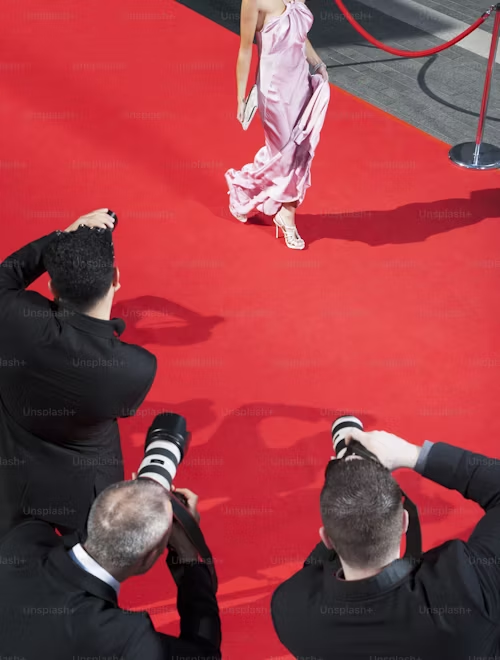Why Are Celebrities’ Wallets Always on Trial?

Celebrities’ wallets have become society’s favorite scapegoat whenever disaster strikes, but it’s time we stop pointing fingers and start looking at what we can do.
For the last few years, we’ve noticed an exhausting trend: every time a tragedy strikes, people immediately rush to see which celebrity is going to swoop in and save the day. A wildfire in California? Who’s donating? A hurricane in Florida?
Which A-lister is stepping up? It’s like a spectator sport, but instead of touchdowns, we’re counting dollar signs. Here’s the hard truth: y’all need to stop living vicariously through celebrities’ paychecks.
Why Are Celebrities’ Wallets Always on Trial?
It’s time to redirect that energy and recognize that we have the same ability—and responsibility—to make a difference with what we have.
Let’s do the math. Take the California wildfires, which unfortunately cause devastation almost annually. As people lose homes and livelihoods, the internet starts demanding answers:
“Why isn’t Beyoncé doing more?” or “Why doesn’t LeBron James give all his money to the victims?”
Hold up. Let’s break this down:
- In 2018, LeBron James donated $2.5 million to wildfire relief efforts. Sounds like a lot, right? Not for some people. Critics immediately claimed it wasn’t enough because his net worth is estimated at over $1 billion. But consider this: donating $2.5 million for LeBron is like someone earning $100,000 a year donating $250. That’s it. Are you donating $250 to wildfire relief? If not, why are you expecting celebrities’ contributions to be exponentially more?
- In 2020, Taylor Swift quietly donated $1 million to Tennessee tornado victims. That’s the equivalent of someone earning $75,000 giving about $75. Again, are you matching that energy?
- Oprah donated $10 million to COVID-19 relief in 2020. It’s easy to argue that she “could’ve done more” when her net worth is in the billions. But let’s be real: how many people earning $50,000 a year wrote a $500 check to COVID relief?
These comparisons are not to downplay the generosity of these donations but to highlight the flawed logic of demanding more from celebrities when the average person often isn’t willing to make proportional sacrifices.
Why Blame Celebrities When the Power is in Our Hands?
By constantly focusing on celebrities’ bank accounts, we deflect responsibility. It’s easier to say,
“Why isn’t Jay-Z fixing homelessness?” than to ask, “What am I doing to help?”
The truth is, if every working adult in America donated just $20 to a cause, we could raise billions—no celebrities required.
Examples of Public Criticism
- Hurricane Harvey (2017): When Beyoncé donated $7 million for disaster relief, people still complained it wasn’t enough. Meanwhile, how many people skipped a $5 Starbucks run to contribute?
- Notre Dame Fire (2019): Billionaires pledged hundreds of millions to rebuild the cathedral, and critics asked why they weren’t solving world hunger instead. Spoiler: rebuilding Notre Dame didn’t stop anyone else from donating to hunger relief.
- California Wildfires (2018): Celebrities like Sandra Bullock donated $100,000. Social media exploded with “that’s pocket change!” comments, ignoring the fact that most people donated nothing.
- Flint Water Crisis (2014-Present): Jaden Smith provided water filtration systems and Beyoncé donated proceeds from concerts, yet critics asked why they didn’t “fix the entire crisis.” The real question: why wasn’t the collective outrage directed at systemic failures?

- Keanu Reeves – Cancer Research
Keanu Reeves has quietly donated millions to cancer research over the years, even reportedly funding a significant portion of his sister’s leukemia treatments. Despite his generosity, critics have still questioned why he doesn’t make his donations public or contribute more given his net worth. This ignores the fact that he consistently gives both his time and money to causes without seeking publicity, proving that impactful philanthropy doesn’t need to be flashy. - Emma Watson – Gender Equality Campaigns
Emma Watson, a UN Women Goodwill Ambassador, donated $1 million to the UK Justice and Equality Fund to support women facing workplace harassment. Instead of praising her contribution, detractors complained it was a “drop in the bucket” compared to her earnings, overlooking her tireless advocacy and public work to raise awareness, including dedicating her time to global gender equality campaigns. - Chris Pratt – Feeding America
Chris Pratt donated $20,000 to Feeding America and shared the campaign with his followers, urging them to contribute. Instead of applauding his efforts, some commenters dismissed the donation as “not enough,” even though he also spent hours volunteering at food banks, using his platform to amplify the organization’s work.
And the list goes on: earthquakes in Haiti, Hurricane Katrina, Australian bushfires.
Every time, the conversation shifts from “How can we help?” to “Why isn’t so and so doing more?”
If we redirected even a fraction of this energy into collective action, we could make a real impact. Here’s how:
- Give What You Can: Whether it’s $5 or $500, every bit helps. Charities thrive on small donations.
- Volunteer: Time is as valuable as money. Soup kitchens, shelters, cleanup efforts—your hands are needed.
- Spread Awareness: Use your platforms to amplify reputable organizations doing the work.
- Advocate for Policy Change: Lobby for government funding to address systemic issues instead of relying on private philanthropy or celebrities’ philanthropy.
Let’s stop the performance of policing celebrities’ donations and start focusing on what we can do as individuals and communities. The reality is that no one is obligated to donate—even billionaires.
But if they’re willing to contribute, that’s their choice, not their duty. Instead of criticizing celebrities’ generosity as “not enough,” ask yourself what you’ve done to help.
Celebrities may have more money, but the rest of us have numbers—and numbers are powerful when put to good use. So next time disaster strikes, skip the Twitter complaints and figure out how you can make a difference.
Now, go donate $20. Or, at the very least, stop complaining about celebrities.


